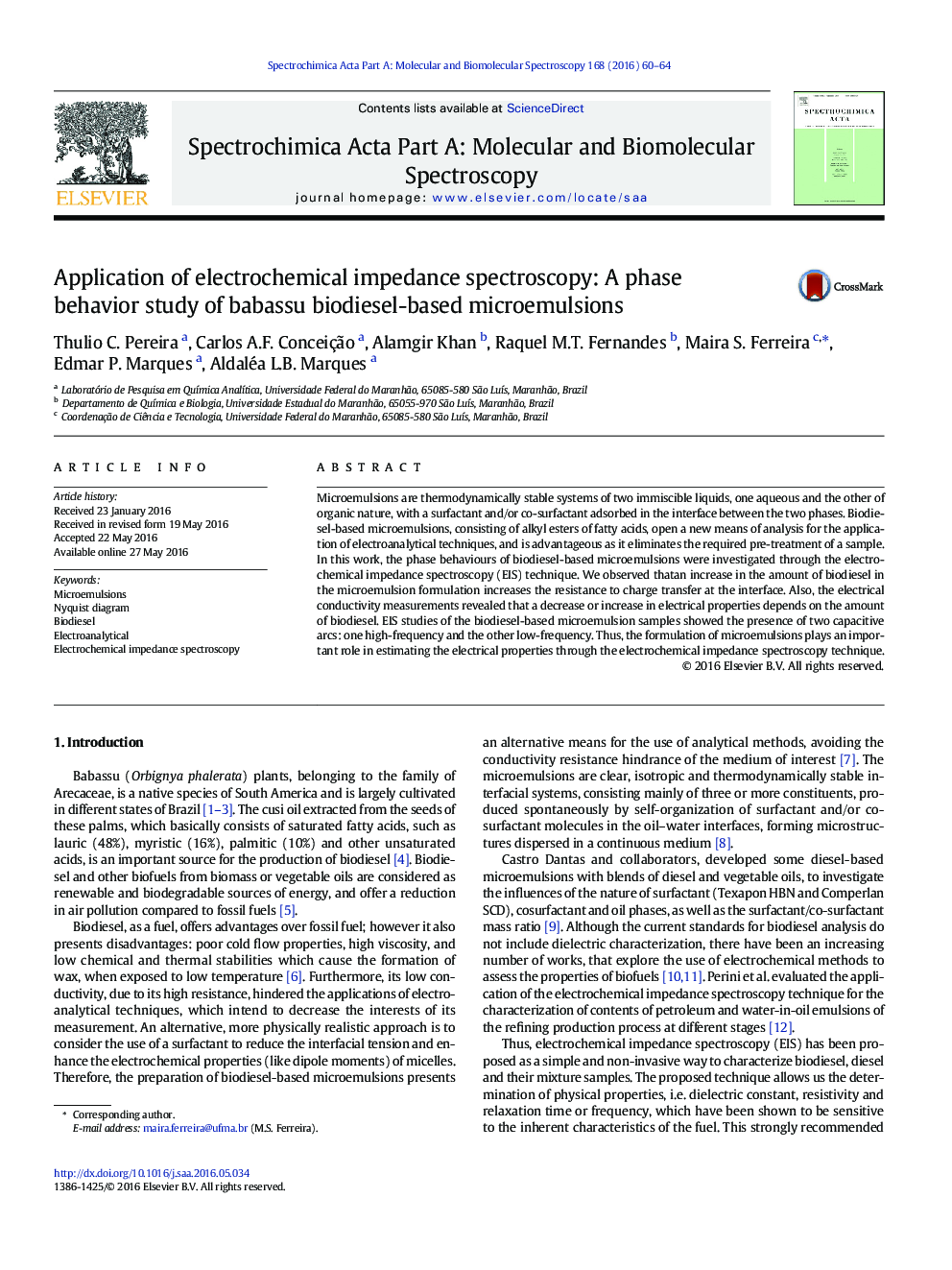| Article ID | Journal | Published Year | Pages | File Type |
|---|---|---|---|---|
| 1230408 | Spectrochimica Acta Part A: Molecular and Biomolecular Spectroscopy | 2016 | 5 Pages |
•Biodiesel, as a fuel, offers advantages over the fossil fuel.•Preparation of biodiesel-based microemulsion as a mean to measure the electrical properties through electrochemical impedance spectroscopy.•The high resistance of the biodiesel hinders its direct application in the electroanalytical techniques, the use of biodiesel-based microemulsions is being suggested as an efficient and alternative for electrochemical analyses.
Microemulsions are thermodynamically stable systems of two immiscible liquids, one aqueous and the other of organic nature, with a surfactant and/or co-surfactant adsorbed in the interface between the two phases. Biodiesel-based microemulsions, consisting of alkyl esters of fatty acids, open a new means of analysis for the application of electroanalytical techniques, and is advantageous as it eliminates the required pre-treatment of a sample. In this work, the phase behaviours of biodiesel-based microemulsions were investigated through the electrochemical impedance spectroscopy (EIS) technique. We observed thatan increase in the amount of biodiesel in the microemulsion formulation increases the resistance to charge transfer at the interface. Also, the electrical conductivity measurements revealed that a decrease or increase in electrical properties depends on the amount of biodiesel. EIS studies of the biodiesel-based microemulsion samples showed the presence of two capacitive arcs: one high-frequency and the other low-frequency. Thus, the formulation of microemulsions plays an important role in estimating the electrical properties through the electrochemical impedance spectroscopy technique.
Graphical abstractFigure optionsDownload full-size imageDownload as PowerPoint slide
